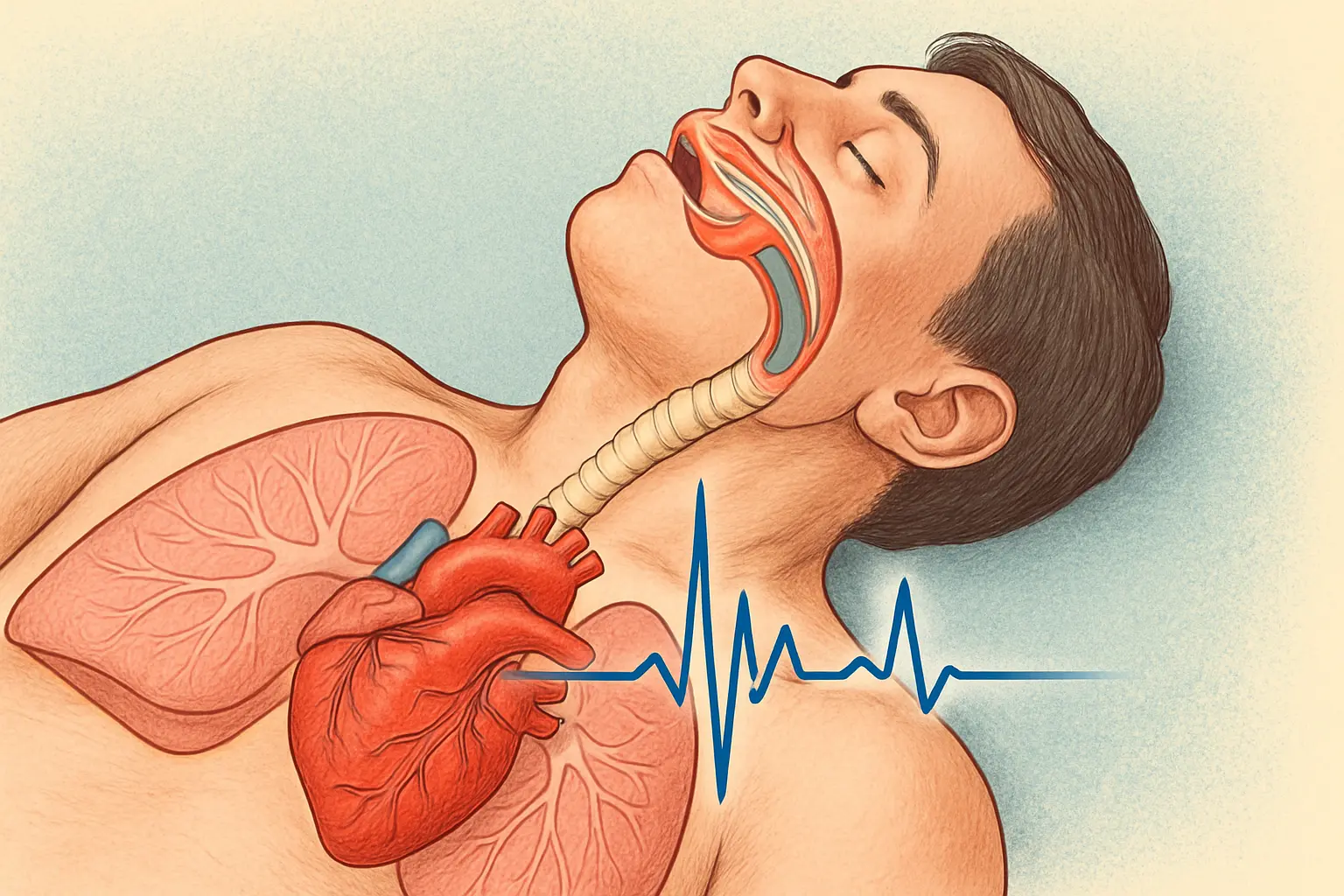The Surprising Link Between Snoring and Heart Health
Snoring is often dismissed as a harmless annoyance, but research increasingly shows it can be a warning sign of cardiovascular strain.
Frequent loud snoring may signal sleep apnea or disrupted breathing, both of which elevate heart rate, blood pressure, and long-term cardiovascular risk.
How Snoring Affects the Heart
During obstructed breathing episodes, oxygen levels drop, prompting the body to react:
- Increased sympathetic nervous activity — raises blood pressure and heart rate
- Intermittent hypoxia — repeated oxygen dips strain the cardiovascular system
- Inflammatory response — chronic low-level inflammation can damage arteries
A 2024 meta-analysis of 18 studies found that habitual snorers had 34% higher risk of developing hypertension and 26% higher risk of coronary artery disease compared to non-snorers.
Data Snapshot: Snoring Severity vs. Cardiovascular Risk
| Snoring Severity | Average Nightly Oxygen Saturation (%) | % With Elevated Blood Pressure | Heart Rate Variability (ms) |
|---|---|---|---|
| Mild | 95.6 | 18% | 60 |
| Moderate | 93.8 | 29% | 52 |
| Severe | 91.2 | 42% | 47 |
This data illustrates the direct correlation between snoring severity and cardiovascular strain.
Why Sleep Apnea Plays a Role
Many snorers actually have undetected obstructive sleep apnea (OSA).
Repeated airway collapse triggers micro-awakenings, elevating heart workload and disrupting normal circadian rhythm.
Even mild OSA can lead to endothelial dysfunction, increasing the risk for atherosclerosis over time.
SnailSleep analysis of 500,000 user recordings found moderate-to-severe apnea in 8% of habitual snorers, most of whom were unaware of the condition.
Lifestyle and Behavioral Interventions
- Weight management — Even a 5–10 lb reduction can reduce snoring intensity.
- Side sleeping — Helps keep airways open.
- Limit alcohol and sedatives — These relax throat muscles excessively.
- Nasal hygiene — Use saline sprays or strips to reduce airway obstruction.
- Regular cardiovascular check-ups — Early detection of high blood pressure or arrhythmia is key.
AI Monitoring for Heart-Safe Sleep
Apps like SnailSleep combine snoring detection with:
- Oxygen saturation tracking
- Heart rate and variability monitoring
- Snoring pattern analysis
This allows users to identify high-risk nights, visualize trends, and intervene early — before cardiovascular complications arise.
Example Insight:
"Severe snoring detected for 42% of total sleep time; heart rate elevated 15 bpm above baseline during apneic events."
Real-Life Case: Michael's Heart Awareness
Michael, 52, had been a loud snorer for years.
After using SnailSleep, he discovered multiple nightly oxygen dips and elevated heart rates during snoring episodes.
Following lifestyle adjustments and medical consultation, his snoring score decreased by 60%, and his cardiologist confirmed improved blood pressure and reduced risk markers.
Related Articles
- When Snoring Gets Dangerous: Early Warning Signs of Sleep Apnea
- The Role of Weight and Obesity in Snoring and Sleep Apnea
- How Alcohol and Late-Night Eating Affect Sleep Quality and Snoring

